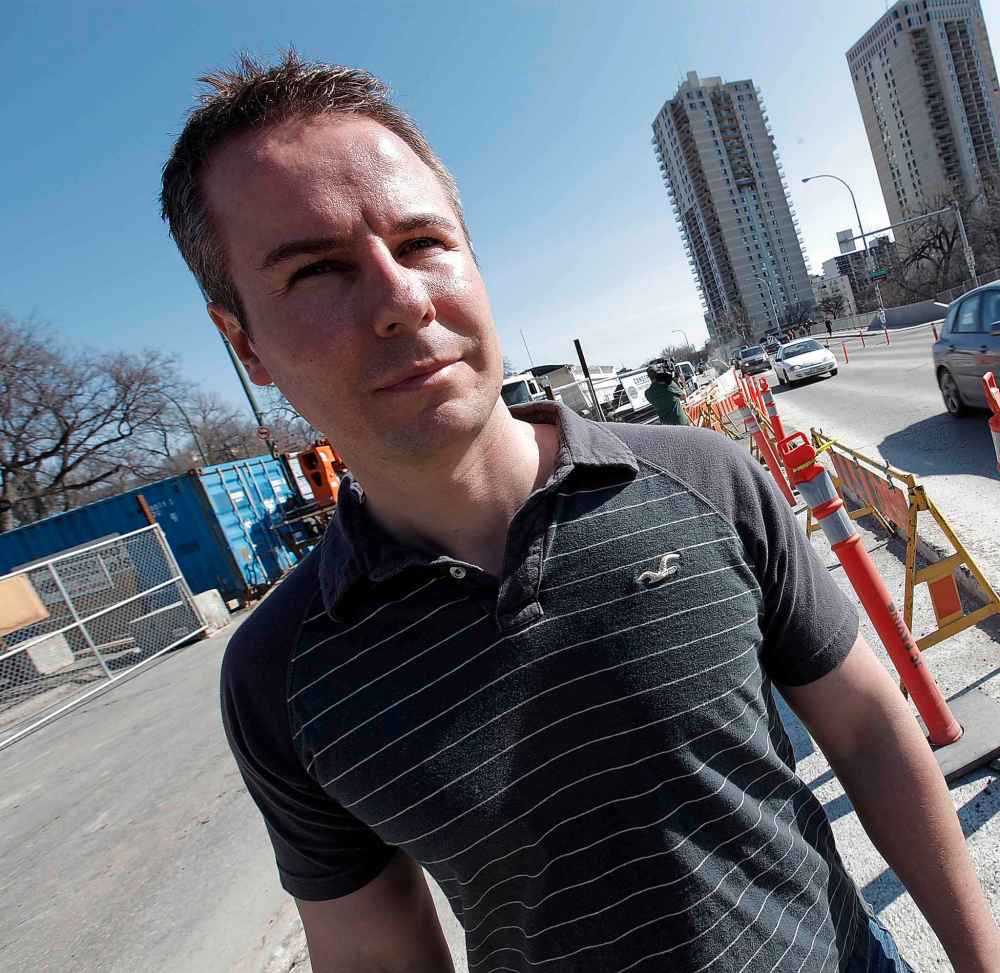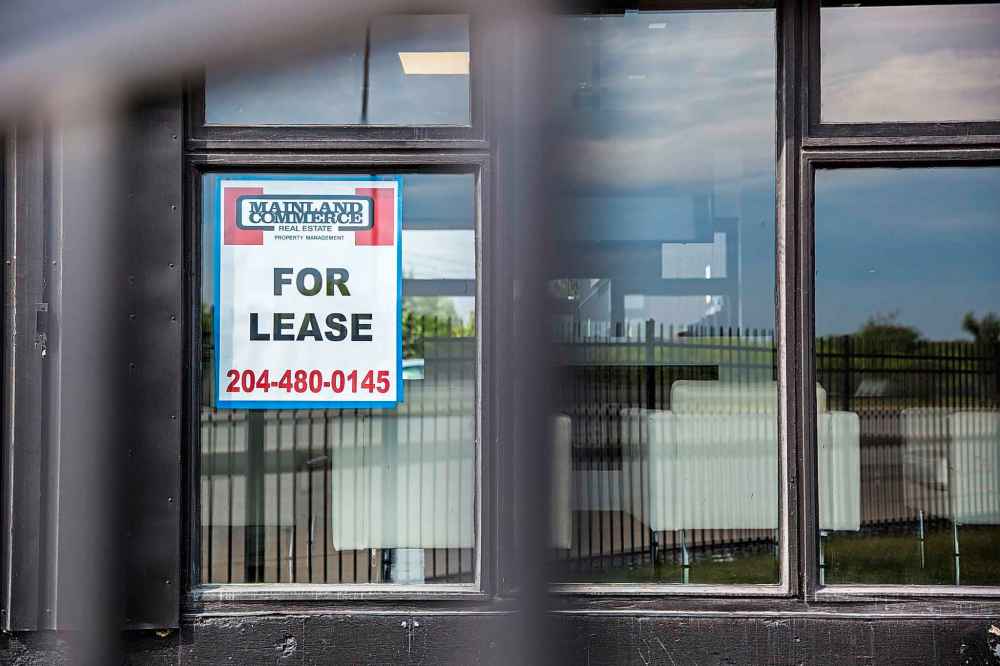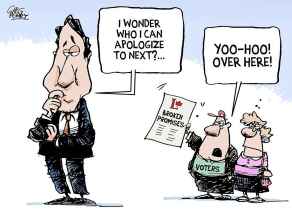Client details $30,000 loss in immigration deal Newcomer-hopeful details experience with Winnipeg lawyer at centre of Law Society probe
Read this article for free:
or
Already have an account? Log in here »
To continue reading, please subscribe:
Monthly Digital Subscription
$0 for the first 4 weeks*
- Enjoy unlimited reading on winnipegfreepress.com
- Read the E-Edition, our digital replica newspaper
- Access News Break, our award-winning app
- Play interactive puzzles
*No charge for 4 weeks then price increases to the regular rate of $19.00 plus GST every four weeks. Offer available to new and qualified returning subscribers only. Cancel any time.
Monthly Digital Subscription
$4.75/week*
- Enjoy unlimited reading on winnipegfreepress.com
- Read the E-Edition, our digital replica newspaper
- Access News Break, our award-winning app
- Play interactive puzzles
*Billed as $19 plus GST every four weeks. Cancel any time.
To continue reading, please subscribe:
Add Free Press access to your Brandon Sun subscription for only an additional
$1 for the first 4 weeks*
*Your next subscription payment will increase by $1.00 and you will be charged $16.99 plus GST for four weeks. After four weeks, your payment will increase to $23.99 plus GST every four weeks.
Read unlimited articles for free today:
or
Already have an account? Log in here »
Hey there, time traveller!
This article was published 09/07/2019 (2345 days ago), so information in it may no longer be current.
One hopeful immigrant to Canada says his trust in the legal profession has been shattered after his three-year involvement with a Winnipeg lawyer now at the centre of a Law Society of Manitoba investigation.
The man, who lives overseas, hopes somehow to recoup the $30,000 deposit he says Paul Hesse convinced him to invest in a business owned by the lawyer’s now-ex romantic partner, White Lotus Pet Spa owner Patrick Maxwell.
“Trust in lawyers is a big question mark now for me,” the man told the Free Press in a phone interview this week. He has asked to remain anonymous, as he is still pursuing the immigration process.
Hesse did not reply to a Free Press request for comment on the issues raised by the client.
“Trust in lawyers is a big question mark now for me.” –Former client
The prominent immigration lawyer and former Manitoba Liberal Party president was stripped of his partnership at Pitblado Law on June 7.
The client, who was interested in coming to Canada as a business immigrant, said he first met Hesse during an exploratory visit to Winnipeg in June 2016. The lawyer had come recommended by several professionals, and during a meeting at his downtown office, he said the client had a strong background for an immigration claim, the man said.

Hesse was “very professional and very respectful,” and the man enlisted the lawyer’s services.
Over the course of the next 2 1/2 years, the client said he grew increasingly frustrated with Hesse. The application hit a number of roadblocks and, in January 2019, Manitoba Immigration rejected the claim.
Days later, Hesse said if the man invested $150,000 in a local business, he would be able to get a Canadian work permit as a business owner-operator, the client said. The lawyer showed him several options, including what he described as Airbnb-style, short-term home rentals in Winnipeg.
“It is quite a good business and profitable,” Hesse wrote in an email viewed by the Free Press.
Hesse wrote the investment was guaranteed, and would be returned if the immigration claim failed. Once the investment was repaid to the client, he wrote, the client would “return the shares (and therefore return the valuable property ownership to the founder).”
The client said the lawyer recommended he invest in a business called Top Tier Accommodations.

According to former staff at White Lotus Pet Spa, Top Tier Accommodations was one of multiple businesses set up by Hesse and Maxwell that had little, if any, outside clients or revenue. A sparse website for Top Tier Accommodations lists one of its perks as pet boarding and grooming services provided by White Lotus.
On Feb. 5, Hesse emailed the client again, writing he had “spoken to the owner of Top Tier Accommodations.” Hesse wrote he believed he could get the client a document that allows employers to hire foreign workers, called a labour market impact assessment (LMIA) approval, within two months.
“The chances of refusal are virtually zero,” Hesse wrote.
The business owner, he wrote, was willing to make the client an investment offer that would include paying annual dividends on the initial investment if the client’s application for a LMIA or work permit was not successful.
“He is willing to do so because I have explained the very low chance of refusal and because his business model is quite profitable,” Hesse wrote. “His rate of return exceeds it and he can afford to pay a dividend on the deposit, if necessary.”
In the email, Hesse left little doubt of what he thought the client should do.
“Please give it some thought,” the lawyer wrote in closing. “I do believe this is a better path to immigration for you than the business immigration program. It is faster and less expensive. Now I have negotiated some additional terms for your benefit if you want them.”
The client decided to take a closer look at the house rental business. He visited its website (toptieraccommodations.ca), and called a phone number listed as a contact. The call went to voicemail. He also sent the business an email posing as a customer interested in making a booking, and never received a response.

While he was suspicious, the client said, he also trusted Hesse’s advice, so he agreed to make the investment. The business owner initially sought the full $150,000, but the client refused, he said. Mediated by Hesse, they settled on a $30,000 deposit, the client said.
On Feb. 8, the client and Maxwell signed the investment guarantee. The Free Press viewed part of the contract, which named Maxwell as the guarantor of the investment in a numbered company and included his signature.
The client transferred the money in March. Despite his suspicions, he trusted the transaction in part, he said, because it went through the Pitblado Law trust account.
After the contract was signed, Hesse was to file the application for an LMIA, which would pave the way for the client’s work permit. Weeks passed; he often did not return the client’s phone calls and was late replying to emails, the client said.
In May, Hesse told the client he had submitted the LMIA application. Weeks later, Service Canada — a federal body which provides access to various government services and processes LMIA applications — showed no record it had been submitted.
On June 7, the client called Hesse, asking why the LMIA did not appear to be registered with Service Canada. Hesse asked him to wait another week, he said.
That was the last time he heard from Hesse.
That same day, Hesse was called to a meeting with Pitblado Law’s executive committee, who had grown concerned about financial questions linked to the partner’s activities. After the meeting, managing partner Benjamin Hecht told the Free Press last week, the firm seized Hesse’s laptop and locked out his access to Pitblado accounts.
The client believes Hesse never filed for the LMIA to advance his immigration claim.
The man said he is also frustrated with his experience reaching out to Pitblado for answers. He tried to contact Hecht for a week without response, after which time he received an email saying the case was going to the Law Society of Manitoba for investigation.
“At least they could pick up the phone and call them and say this is the issue, and you can contact any other lawyer for the case,” the client said. “They didn’t care about this one. It was a copy and paste from one single letter to me.”
In an email Tuesday to the Free Press, Hecht expressed understanding.
“We know that clients are angry and confused by the allegations surrounding Mr. Hesse — they have every right to be,” he wrote. “We were devastated to learn of this ourselves. Mr. Hesse abused his position and the trust of his clients.”
“We know that clients are angry and confused by the allegations surrounding Mr. Hesse — they have every right to be.”–Pitblado Law managing partner Benjamin Hecht
The Winnipeg firm is now focused on co-operating with the Law Society and getting clients the information they need, he said. Because Hesse worked independently and did not acceptably hand over his client files to another lawyer, Hecht added, reviewing those files has been “highly time-consuming.”
“This process is ongoing, and we apologize for the challenges that this has caused, including any delays in responding to inquiries from clients,” he wrote. “We are committed to using every tool at our disposal to assist impacted clients and to demonstrate the integrity and professionalism for which our firm is known.”
In an interview with the Free Press last week, Hecht said Pitblado had identified at least 20 of Hesse’s former immigration clients who may have been affected.
Now, the former client just hopes to get his money back. He has reached out to the Law Society, which maintains two funds to compensate clients for losses incurred as a result of a lawyer’s actions.
“My question is: what he did with this money?” the client said. “Did he take all this money from the other clients, and me, as well?”
melissa.martin@freepress.mb.ca
Our newsroom depends on a growing audience of readers to power our journalism. If you are not a paid reader, please consider becoming a subscriber.
Our newsroom depends on its audience of readers to power our journalism. Thank you for your support.
History
Updated on Tuesday, July 9, 2019 8:37 PM CDT: Fixes typos.














